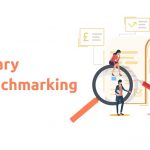Technology
Top 5 Tips for Reliable Smartphone Security

Nowadays, having access to data on the go is as ubiquitous as having access to water or a jacket. Yet despite the convenience of being able to log onto the Internet from your smartphone from nearly any location, there are certain risks regarding smartphone security that should concern everyone using a mobile device in public. Namely, free public Wi-Fi networks make us vulnerable to cyberattacks and data breaches.
According to TechRepublic, Android ransomware increased 137.8% from the first quarter to the second quarter of 2017. A benchmarking study of the cybersecurity practices of global companies offers insight into cyber threats. The study, called The Cybersecurity Imperative, was released by ESI ThoughtLab and WSJ Pro Cybersecurity and was sponsored by Security Industry Association (SIA), along with other partners. The study cites the following leading cyberthreats in 2018, which include malware, phishing, ransomware, viruses, and attacks from apps.
Wireless network hotspots, which are often provided by coffee shops, hotels, or airports, are significantly less secure than our private connection at home or in the office. Tech-savvy cybercriminals can easily hack into public networks and attempt to steal or even lock and extort confidential information for financial gain. One option to prevent cybertheft is to not use public Wi-Fi, however, it’s often hard to pass up. Therefore, in order to use hotspots safely, it pays to follow these simple tips to ensure you’re not an easy target for cybercriminals.
Use a Reliable Anti-Malware
Since we have already decided that it’s vital to have reliable cybersecurity protection on all our devices in order to detect, quarantine, delete and report any type of suspicious activity, it is important to continue applying this rule when we are on the go. According to cybersecurity leader Kaspersky, there were a more than 42.7 million mobile malware attacks in 2017 and malicious mobile software threats were found in more than 230 countries worldwide, making travelers especially vulnerable to cyberattacks.
Therefore, to ensure our smartphones are secure, having a reliable anti-malware is a no-brainer. The software performs routine scans of your smartphone or mobile device and updates itself with the latest security protection against cyber threats.
Always Use a Virtual Private Network (VPN)
A VPN, or Virtual Private Network, ensures you can use the Internet safely because it disguises your online identity. Rather than browsing the Internet openly by using a coffee shop, restaurant or hotel’s free Wi-Fi network, use VPN software with encryption technology to safeguard your identity and ensure you are browsing anonymously. This will protect you from those who want to spy on what you’re doing online.
A reliable VPN for smartphone automatically changes your IP address to conceal your actual location. Fundamentally, a VPN makes your smartphone or mobile device as well as the information within it undetectable and therefore inaccessible to anyone who may be on the same Wi-Fi network as you. Not only will hackers not be able to pilfer your data, but they also won’t be able to infect your device with ransomware or other malware.
Be Careful Where You Connect
It is crucial to be sure you’re joining a secure Wi-Fi connection. Often, we connect simply by instinct. For example, if a network is called HotelFreeWiFi, we may innocently assume that it is the hotel’s network, yet it can often be a calculated “man-in-the-middle” attack employed by hackers to fool users into logging in in order to steal their information.
According to the Pew Research Center, 54% of internet users use public Wi-Fi networks, and many perform sensitive activities such as online shopping (21%) or online banking (20%) in public. Therefore, when logging in on the go, ensure your Wi-Fi network is secure and not a rogue network. Double check with the barista or receptionist to find out the actual name of the coffee shop or hotel Wi-Fi network.
Remain Alert On-The-Go
It is also important to be selective about what you’re looking at on your smartphone while in public. Using free Wi-Fi for reading the news or streaming music is one thing but be careful when you’re performing sensitive tasks like reading your email, banking, or online shopping. When performing these activities, you find a secured connection in an Internet browser that has a padlock or the letters HTTPS or SSL in the URL window, rather than HTTP.
Also, for added security, try to perform sensitive operations from your own personal hotspot by using your data plan for things like email, shopping or banking.
Additional Tips
It is also important to back-up your important information and other data at least once a week just in case you lose your smartphone, or your mobile device is stolen. A great solution is to use cloud services and local back-up, like a USB flash drive or external hard drive.
Also, use a strong password, which is at least 7 characters long, has a combination of letters, numbers and symbols, and combines upper and lower cases. Experts say it can also be effective to use a passphrase, such as a line from your favorite song, like “royaltyinsidemydna,” from Kendrick Lamar’s DNA.
Additionally, when possible, choose a two-step verification that requires not just a password to log in, but also a one-time code that is sent to your smartphone in order to confirm it’s actually you using the device. If your smartphone is not set up to do this automatically, download the latest free software updates for the Windows or Mac operating system on your device.
Users should be concerned about smartphone security even if privacy isn’t a top priority for them. A VPN for smartphone or tablet, which unlike your home computer will be using public Wi-Fi access occasionally, either in a coffee shop, airport, or hotel, ensures your data is protected. Public hotspots are not particularly trustworthy, and those that don’t require a password are even more vulnerable to attack. A mobile VPN isn’t just smart, it’s vital.
Technology
Expert Reveals Top Cyber Threats Organisations Will Encounter in 2026

By Adedapo Adesanya
Organisations in 2026 face a cybersecurity landscape markedly different from previous years, driven by rapid artificial intelligence adoption, entrenched remote work models, and increasingly interconnected digital systems, with experts warning that these shifts have expanded attack surfaces faster than many security teams can effectively monitor.
According to the World Economic Forum’s Global Cybersecurity Outlook 2026, AI-related vulnerabilities now rank among the most urgent concerns, with 87 per cent of cybersecurity professionals worldwide highlighting them as a top risk.
In a note shared with Business Post, Mr Danny Mitchell, Cybersecurity Writer at Heimdal, said artificial intelligence presents a “category shift” in cyber risk.
“Attackers are manipulating the logic systems that increasingly run critical business processes,” he explained, noting that AI models controlling loan decisions or infrastructure have become high-value targets. Machine learning systems can be poisoned with corrupted training data or manipulated through adversarial inputs, often without immediate detection.
Mr Mitchell also warned that AI-powered phishing and fraud are growing more sophisticated. Deepfake technology and advanced language models now produce convincing emails, voice calls and videos that evade traditional detection.
“The sophistication of modern phishing means organisations can no longer rely solely on employee awareness training,” he said, urging multi-channel verification for sensitive transactions.
Supply chain vulnerabilities remain another major threat. Modern software ecosystems rely on numerous vendors and open-source components, each representing a potential entry point.
“Most organisations lack complete visibility into their software supply chain,” Mr Mitchell said, adding that attackers frequently exploit trusted vendors or update mechanisms to bypass perimeter defences.
Meanwhile, unpatched software vulnerabilities continue to expose organisations to risk, as attackers use automated tools to scan for weaknesses within hours of public disclosure. Legacy systems and critical infrastructure are especially difficult to secure.
Ransomware operations have also evolved, with criminals spending weeks inside networks before launching attacks.
“Modern ransomware operations function like businesses,” Mitchell observed, employing double extortion tactics to maximise pressure on victims.
Mr Mitchell concluded that the common thread across 2026 threats is complexity, noting that organisations need to abandon the idea that they can defend against everything equally, as this approach spreads resources too thin and leaves critical assets exposed.
“You cannot protect what you don’t know exists,” he said, urging organisations to prioritise visibility, map dependencies, and focus resources on the most critical assets.
Technology
NCC Begins Review of National Telecommunications Policy After 26 Years

By Adedapo Adesanya
In a consultation paper released to the public, the commission said it is seeking input from stakeholders, including telecom operators, tech companies, legal experts, and the general public, on proposed revisions designed to reposition Nigeria’s telecommunications framework to match current digital demands. Submissions are expected by March 20, 2026.
The NTP 2000 marked a turning point in Nigeria’s telecom landscape. It replaced the 1998 policy, introducing full liberalisation and a unified regulatory framework under the NCC, and paved the way for the licensing of GSM operators such as MTN, Econet (now Airtel), and Globacom in 2001 and 2002.
Prior to the NTP, the sector was dominated by Nigerian Telecommunications Limited (NITEL), a government-owned monopoly plagued by obsolete equipment, low teledensity, and poor service. At the time, Nigeria had fewer than 400,000 telephone lines for the entire country.
However, the NCC noted that just as the 1998 policy was overtaken by global developments, the 2000 framework has become structurally misaligned with today’s telecom reality, which encompasses broadband, 5G networks, satellite internet, artificial intelligence, and a thriving digital economy worth billions of dollars.
“The rapid pace of technological change and emerging digital services necessitate a comprehensive update to ensure the policy continues to support economic growth while protecting critical infrastructure,” the Commission stated.
The review will target multiple chapters of the policy. Key revisions include: Enhancements on online safety, content moderation, digital services regulation, and improved internet exchange protocols; a modern framework for satellite harmonisation, coexistence with terrestrial networks, and clearer spectrum allocation to boost service quality, and policies to address fiscal support, reduce multiple taxation, and lower operational costs for operators.
The NCC is also proposing entirely new sections to the policy to address emerging priorities. Among the key initiatives are clear broadband objectives aimed at achieving 70 per cent national broadband penetration, with a focus on extending connectivity beyond urban centres to reach rural communities.
The review also seeks to formally recognise telecom infrastructure, including fibre optic cables and network masts, as Critical National Infrastructure to prevent vandalism and enhance security.
In addition, the commission is targeting the harmonisation of Right-of-Way charges across federal, state, and local governments, alongside the introduction of a one-stop permitting process for telecom deployment, designed to reduce bureaucratic delays and lower operational costs for operators.
According to the NCC, the review aims to make fast and affordable internet widely accessible. “The old framework was largely voice-centric. Today, data is the currency of the digital economy,” the commission said, highlighting the need to close the urban-rural broadband divide.
The consultation process is intended to gather diverse perspectives to ensure the updated policy reflects current technological trends, market realities, and consumer needs. By doing so, the NCC hopes to maintain the telecommunications sector’s role as a key driver of economic growth and digital inclusion.
Technology
FG to Scrutinise MTN’s $2.2bn Full Take Over of IHS Towers

By Adedapo Adesanya
The Minister of Communications, Innovation and Digital Economy, Mr Bosun Tijani, says the Nigerian government is assessing MTN Group’s acquisition of IHS Towers to ensure the deal aligns with Nigeria’s telecommunications development goals.
On Tuesday, MTN Group said it has agreed to acquire the remaining 75.3 per cent stake in IHS Holding Limited in an all-cash deal valued at $2.2 billion. The deal will be funded through the rollover of MTN’s existing stake of around 24 per cent in IHS, as well as about $1.1 billion in cash from MTN, roughly $1.1 billion from IHS’s balance sheet, and the rollover of no more than existing IHS debt.
Mr Tijani, in a statement, said the administration of President Bola Tinubu has spent the past two years strengthening the telecom sector through policy clarity, regulatory support, and engagement with industry stakeholders, boosting investor confidence and sector performance.
“Recent financial results from key operators show improved profitability, increased investment in telecoms infrastructure, and operational stability across the sector,” he said.
“These gains reflect the resilience of the industry and the impact of government reforms.”
The minister added that telecommunications infrastructure is critical for national security, economic growth, financial services, innovation, and social inclusion.
“We will undertake a thorough assessment of this development with relevant regulatory authorities to review its impact on the sector,” Mr Tijani said.
He added that the review aims to ensure market consolidation or structural changes, protect consumers, safeguard investments, and preserve the long-term sustainability of the telecom industry.
Mr Tijani also said the government remains committed to maintaining a stable and forward-looking policy environment to keep Nigeria’s telecommunications sector strong and sustainable, in line with the administration’s broader digital economy vision.
Upon completion, the transaction will see MTN transition from being a minority shareholder in IHS to a full owner. It will also see IHS exit from the New York Stock Exchange and become a wholly owned subsidiary of MTN.
For MTN, the deal represents a decisive shift as data demand surges and digital infrastructure becomes increasingly strategic with a booming digitally-oriented youth population on the continent.
-

 Feature/OPED6 years ago
Feature/OPED6 years agoDavos was Different this year
-
Travel/Tourism10 years ago
Lagos Seals Western Lodge Hotel In Ikorodu
-

 Showbiz3 years ago
Showbiz3 years agoEstranged Lover Releases Videos of Empress Njamah Bathing
-

 Banking8 years ago
Banking8 years agoSort Codes of GTBank Branches in Nigeria
-

 Economy3 years ago
Economy3 years agoSubsidy Removal: CNG at N130 Per Litre Cheaper Than Petrol—IPMAN
-

 Banking3 years ago
Banking3 years agoSort Codes of UBA Branches in Nigeria
-

 Banking3 years ago
Banking3 years agoFirst Bank Announces Planned Downtime
-

 Sports3 years ago
Sports3 years agoHighest Paid Nigerian Footballer – How Much Do Nigerian Footballers Earn













1 Comment